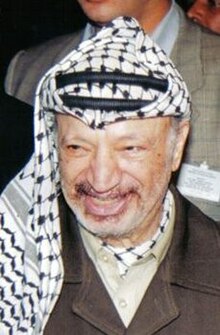Rais

| Part of a series on |
| Imperial, royal, noble, gentry and chivalric ranks in West, Central, South Asia and North Africa |
|---|
 |
|
|
Raʾīs (
British India
In British India the landed nobility in Muslim societies often used the word rais to describe their aristocratic position held in society. The term rais was also often used by Muslims when making deed of endowments in their community. Although the word meant 'chief' or 'leader', legal documents used it in the context of 'landlords' or landowners. Other terms such as malik or zamindar also appeared as 'landlords', ‘landowners, or 'taxers', even though these titles implied that the individual who bore them was more ruler than proprietor.[2]
However, when describing any aspect of the management of their holdings, 'rais or zamindars' employed regal terminology. The rais sat upon a throne (masand or gaddi). Riayat, whom British preferred to call tenants or cultivators were literally subjects. When a rais met with his riayat he described himself as holding court (darbar). The money which riayat paid his lord was tribute (nazrana) not rent. The place where he paid the tribute was called a kachari, just as a government revenue office was, and the clerks who collected, kept accounts and ensured tributes kept coming on time were known by their Mughal courtly styles of (dewans) and (sipahis – a horse trooper).[2]
Urdu
From Arabic, via Persian, this word came into Urdu as raees, which means a person belonging to the aristocracy of noble distinction.[3]
In Urdu, the word Rais is also used similarly to the English term "old money," as the opposite or antonym of nouveau riche, a person who has accumulated considerable wealth within his or her generation.
When the book "The Pleasure of Philosophy" by Will Durant was translated into Urdu, by Syed Abid Ali Abid, he translated the word aristocracy with the Urdu word raisiyyat (رئیسيت).
Palestine
The Arabic adjective azam [ عظيم ](meaning 'great'), is also added to mean 'the great ra’is'. This term, as well as the Hebrew term יושב-ראש (
In a New York Times op-ed, commentator Bret Stephens referred to late Palestinian leader Yasir Arafat as "the rais."[4]
Tatarstan
In December 2022, regional lawmakers voted to change the title of the head of the republic from president to rais. The title of president was seen as the last remaining symbol of federalism following the centralization reforms under Vladimir Putin.[5]
References
- ^ ISBN 978-90-04-09834-3.
- ^ ISBN 0521088674
- ISBN 978-0-19-960113-4
- ^ Stephens, Bret (November 18, 2017). "Mugabe and Other Leftist Heroes". New York Times: A19.
- ^ "Russia's Tatarstan to Rename Regional Presidency". The Moscow Times. 23 December 2022.
